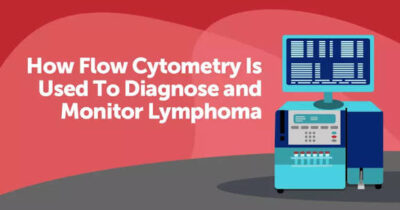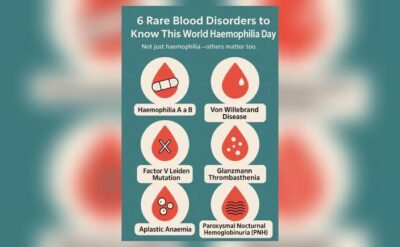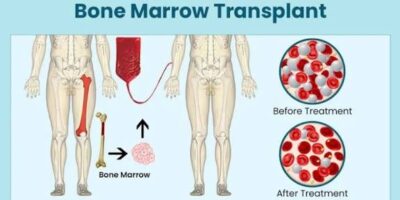Oncology is not just a medical science again – it is a story of numerous patients and families in Pakistan, who are going through a very tough journey, fighting the cancer that is one of the most difficult diseases ever. Medical science has been advancing rapidly and the awareness has grown, consequently, the manner in which cancer is understood, diagnosed, and treated has greatly changed over time. At present, people are not only searching for treatment – they need empathy, understanding, and accurate information to make their decisions.
From detection to recuperation, this handbook intends to simplify the challenging world of oncology through its clear, concise explanations. You must be in need of treatments available, professional advice, or just wanting to comprehend what is coming, this blog throws a floodlight on the cancer care situation in Pakistan.
Understanding Oncology: The Science Behind the Care
Oncology is the field of medicine, concerned with cancer, which is the prevention, diagnosis, and treatment of the disease. It is a giant of knowledge and methods full of continuous changes in new technologies and patient preferences. This discipline is additionally divided into three main parts that together complete the whole treatment process:
● Medical Oncology – Concentrates on local treatments such as chemotherapy, hormone therapy, and targeted drug therapies that are carried by the blood to destroy cancer cells all over the body.
● Surgical Oncology – Covers the manual removal of tumors and the affected tissues by means of surgical operations, thus, it is usually the main factor in both the diagnosis as well as the local controlling of the disease.
● Radiation Oncology – Employs suitably measured doses of radiation for relaxing or killing the cancerous cells either as the only treatment or in combination with surgery and medication.
These three branches of science become parts of the whole, interdisciplinary model of care, in Pakistan, more and more. There was a time when they were working more independently than nowadays. The situation is that there is a more definite trend toward collaborative treatment planning during which oncologists, radiologists, surgeons, and support staff work closely together to design the care most appropriate for a patient. It is not just the matter of targeting the disease anymore today. Fighting the disease is, in fact, only the first step in treating a patient as a whole person. Emotional health, nutrition, pain management, and family support are all becoming essential components of a truly patient-centered approach to oncology.
Signs, Symptoms, and the Importance of Early Detection
Cancer is not necessarily consistent in its manifestations. It may present as a lump or extreme tiredness, or you may lose weight without any reason or have a cough that doesn’t go away. Various types of cancer have their own characteristics, and this is why early detection becomes a very important factor in significantly raising the survival rates of cancer.
Medical practitioners insist on taking precautions. Thus, conducting regular checkups can be highly beneficial, particularly for individuals who have a history of family or are involved in high-risk activities, and this can be the deciding factor. Oncologists generally underline emotional awareness, apart from physical check-ups, and the ability to recognize when our body is not quite right.
The Evolution of Cancer Treatment in Pakistan
A decade ago, the extent of cancer treatment in Pakistan was very limited and it was heavily dependent on overseas consultations and travel. But now things are quite different. Cancer care in Pakistan has become more accessible due to better infrastructure and the implementation of specialized departments in hospitals, both private and public.
This journey of transformation was led by urban centers, with Karachi, Lahore, and Islamabad at the forefront of innovation. The heartening thing is that there is also a visible change in people’s thinking. Patients have become very conscious; families have become very supportive and doctors have received better training.
Navigating Oncology Services: What to Expect
Seeing an oncology doctor for the first time can make one feel really confused and lost. However, being aware of the expected procedures definitely helps in calming that anxiety.
For consultation and treatment, oncology services almost always adhere to the following stages:
● Initial Evaluation: The tests carried out here include blood tests, imaging, and biopsies which serve as the basis for the diagnosis.
● Staging and Planning: Knowing how far the cancer has spread aids in the decision of the treatment plan.
● Treatment Modalities: Among them may be the use of medicine, surgical intervention, or radiation therapy—perhaps, also in conjunction.
● Follow-ups: The checkup after the treatment is very important to be sure that the disease has not come back.
Today, hospitals are making sure that patients are not on this journey alone. They may even give them nurse coordinators or case managers who will be with them all the time.
Choosing Between Oncology Hospitals: Making the Right Call
Due to the increase in the number of options, picking one from many oncology hospitals in Pakistan has become an uphill task. It’s definitely not just about the technology that the hospital has but about the trust as well. A good hospital should give the patient experienced doctors, a comfortable environment, and a clear treatment plan.
Firstly, and most importantly, word of mouth is very influential. Secondly, there is the issue of access. Factors such as closeness to your residence, insurance coverage, and availability of emergency support are often ranked among the top deciding factors. A number of families furthermore tend to check into the hospital’s philosophy: Is the hospital sincerely treating patients with empathy? Does the hospital practice open communication?
Understanding the Financial Side: Oncology Cost Realities
Cancer care certainly isn’t only emotionally draining but is also very costly. Oncology cost in Pakistan is affected by the type of cancer, the stage of the disease, and the hospital chosen. A common treatment plan could consist of several chemotherapy sessions, diagnostic tests, operation, and long-term medication.
Some government hospitals offer subsidized care but a number of private facilities provide comprehensive packages. Nevertheless, it is recommended that families plan their finances beforehand and explore the options of health insurance, charitable organizations, or installment payments if these are accessible.
Chemotherapy in Pakistan: Then and Now
Chemotherapy in Pakistan has made significant progress since the days when patients were more scared of its side effects than the disease. Now, oncologists customize treatments according to the cancer type, genetic markers, and patient tolerance.
The new trend is also targeted therapies that destroy cancer cells with the highest accuracy. Side effects are controlled better, support teams are more competent, and psychological help is more available. Chemo rooms today are not only less scary but also more focused on the patients.
Spotlight: Best Oncologists and Their Role in Treatment
Every successful recovery is a result of a compassionate and skilled professional. The best oncologists don’t only prescribe – they also listen. They engage with the science of the disease while being empathetic, thus enabling patients to feel recognized, understood, and comfortable.
Oncologists from Pakistan who have received their training abroad are now working in the local hospitals. These experts are not only knowledgeable in the medical field, but also have a learning mentality. They take part in international conferences, conduct research and clinical trials – they always stay current with their knowledge.
Advanced Chemotherapy Procedures Explained
Let’s start with the simplest and most commonly misunderstood part of cancer communication: chemotherapy procedures. They are not the same, and the differences are mainly in the way the drugs are transported and how often treatments are given. The kind of chemotherapy that a patient gets is determined by the type of cancer, its site, and the anticipated response of the body.
Generally, the main types of chemotherapy are:
● Intravenous Chemotherapy – Most commonly used method, where drugs are directly delivered to the bloodstream via a vein. This method enables a fast and controlled delivery, and usually, it is administered in cycles in the hospital or a clinic.
● Oral Chemotherapy – They are in the form of pills or capsules that patients manually take at home, hence, the convenience is increased however still the monitoring needs are there.
● Injectable Chemotherapy – It is given in the form of injections into muscles (intramuscular) or just under the skin (subcutaneous), most often it is used for certain cancers or for the dose of maintenance.
● Intrathecal Chemotherapy – For those cancers that are in the brain or in the spinal cord only, this method allows the medication to be given directly to the spinal canal to go past the blood-brain barrier.
Obviously, every chemotherapy regimen has its own timeline, side effects, and the degree of required supervision. Time-to-time during the treatment, doctors analyze organ functions and blood counts to see that the body is accepting the drugs well. Usually, adjustments are made to keep a good balance between efficacy and comfort as well as safety so, hence, chemotherapy becomes an extremely personalized part of cancer treatment.
The Support Systems That Make a Difference
There is no way that a patient should be affected by cancer without any support. Cancer support is an essential part of the healing process, providing emotional power and a sense of belonging. Besides support groups, therapy sessions, helplines, and social media forums have also become the means of safe communication for patients and their families.
Psychologists and nutritionists specializing in cancer care are additionally being employed by more cancer care centers in major cities. The whole concept of care now includes emotional health, dietary management, and family counseling.
Spotlight on Cities: Cancer Hospitals in Lahore, Karachi, Islamabad
Each city brings its own strength to cancer care. If you are searching for cancer hospitals in Lahore, Karachi, or cancer hospitals in Islamabad, the aim is the same: integrated and ethical care.
● The city of Lahore is a combination of history and present-day medical practice. The leading institutions offer research as well as treatment in one place.
● Being the largest city, Karachi is the place where some of the most advanced cancer centers and the specialized oncology wings can be found in the country.
● With its orderly layout, Islamabad is the location of both the well-furnished government and private hospitals, thus it provides a peaceful recovery environment.
These cities have indeed become focal points not only for the patients within Pakistan but also for those who are seeking medical treatment abroad from the neighboring countries.
A Walkthrough of the Oncology Department Setup
An efficiently operating oncology department is characterized by both structure and empathy. Consultation rooms, laboratories, chemo bays, and counseling areas are the examples of spaces that have been designed according to the function.
Nowadays, such departments have:
● Radiation suites with state-of-the-art machines.
● Dedicated palliative care wings.
● In-house labs for faster diagnostics.
● Multidisciplinary tumor boards that involve various specialists to plan care together.
Patients can no longer be treated in isolation. Rather, the system builds collaboration, where doctors, nurses, therapists, and even volunteers become the agents of healing.
What Patients Should Know Before Starting Treatment
One of the biggest challenges for cancer patients is recognizing that they are overwhelmed at the very beginning, but there are still some really important things to remember. No two journeys are the same, and rarely is it useful to compare treatments or results. Side effects to a large extent are under control, as medications nowadays are aimed at lessening nausea, tiredness, and other discomforts. Intimate communication with physicians is highly significant— even small and seemingly irrelevant details might affect the treatment.
The mental aspect is also important, hence the advice for getting help quickly. Patients themselves should be very gentle and understanding of their own feelings, and they must realize that recovery is not a smooth path. An informed patient is a patient with power, and doctors are positively inclined to receiving and answering questions while anticipating families to remain on-the-go.
What Makes a Hospital Truly Cancer-Centered?
At NIBD, we hold the view that cancer care progress is not just about new treatments—it is also about the people who provide the care and the philosophy that shapes every decision. As one of the emerging cancer hospitals in Karachi recognized for our dedication to oncology, we understand that fighting cancer requires far more than just a diagnosis. That’s why we emphasize continuity of care as a complete patient journey, ensuring that no individual is left unsupported – from the very first consultation to treatment and long-term follow-up.
Quite understandably, we are focusing our efforts on communication that is open and honest, as we know how deeply clarity matters during moments of vulnerability and uncertainty. Our patients are provided with an environment that encourages healing and confidence, supported by a wide range of services—from emotional counseling to nutritional guidance. We also work hard to create a warm, welcoming space that helps ease stress during treatment. Evidence-based protocols form the foundation of everything we do, ensuring that each step is guided by the latest developments in oncology. Ultimately, these practices are designed not just for comfort but to contribute meaningfully to improved cancer survival rates, helping patients achieve better outcomes with dignity and strength.
The implications, barely mentioned during a journey, are actually those, which can make big differences to patients on their journey. Trust, reassurance, and dignity are the things NIBD acknowledges as the same dopamine as the medicines. Further, we are fully committed to being present and providing holistic care for our patients as if we are treating the living, not only the disease while we are bent upon accompanying them at each step of the journey.
Recovery, Remission, and the Road Ahead
Going into remission is one of the most noteworthy achievements in the field of oncology, but the journey of recovery doesn’t really finish here. The phase post-cancer requires continuous surveillance, periodic tests, emotional recovery, and amendments in lifestyle that help in retaining good health for a long time. Patients are being motivated to become the main players in their recovery by making conscious changes. This is:
● Eating a nutritious and balanced diet
● Doing exercises regularly based on their energy capacity
● Continuing with medical follow-ups and screenings
Besides the body, the emotional part is just as important. Recognizing small successes can boost self-esteem, while helping others can give one the feeling of being needed and having a mission. Besides being the source of positive energy, recovery stories are the fuel that forgets that cancer is the only winner and that fear would be among the losers.
Final Thoughts
Cancer might start out as a diagnosis – a situation so scary, with so much confusion, and the mind filled with many questions. Yet later on, going through the proper care, receiving kind support, and having access to trustworthy information, that initial surprise can become a story of power, indomitable will, and victory. Definitely not a smooth trip, but still one that many have travelled and won over.
The changes in the oncology services in Pakistan are not just a representation of medical improvements, but also are a symbol of the country’s transition into a society that gives hope, respect, and good life to those who have beyond the disease. The new scene is good from early detection programs to advanced therapies and multidisciplinary teams, thus giving patients not just treatment, but a chance to fight and regain their lives.
If you or someone close to you is going through this difficult time, let me assure you that you have the full support of many people. There is a community of hospitals, doctors, nurses, therapies, and support groups behind a diagnosis, all of them are together trying to make the way easier and brighter for those who are walking this path. Whether you are a beginner or have been at it for some time now, there are people who really care, there are resources available, and there are genuine reasons to trust in recovery.Just because cancer might be a chapter – it doesn’t mean that it must be the whole story.





